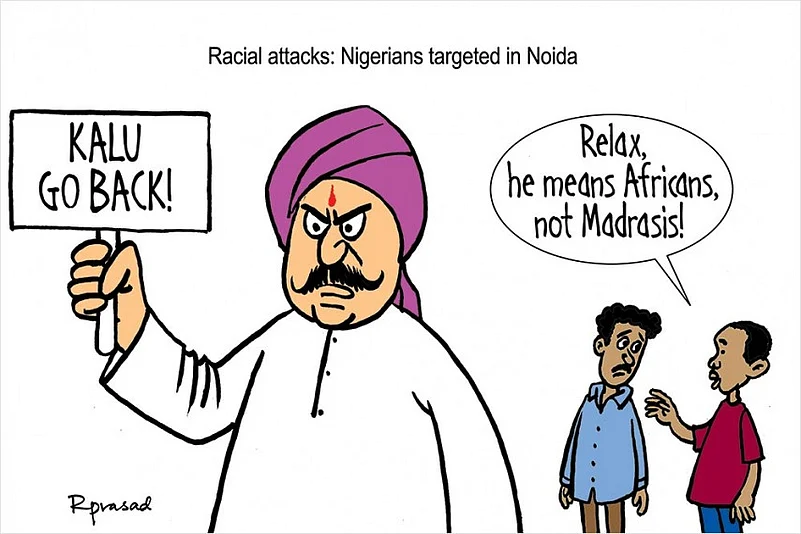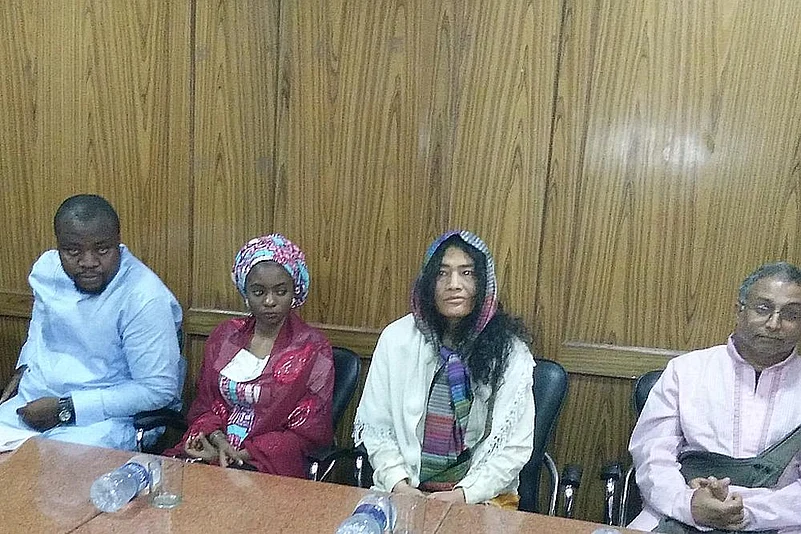Months after the attacks on African students in Greater Noida, the Association of African Students in India (AASI) along with civil rights activist Irom Sharmila today urged the Indian government to take necessary steps to help foreign students facing discrimination.
While addressing a press conference, Samuel Jack, President of AASI said that they have prepared a list of demands that the Indian government needs to address as a matter of urgency to “further quell the impact of such incidents on Africans and people from other minority groups residing in the country.”
Praising Irom Sharmila for her efforts to fight against AFSPA in Manipur, and appreciating the support received from the north east India, Jack said that they need a common platform to fight against discrimination.
Advertisement
On being asked about collaboration with minority groups like dalits, Jack said that they are looking forward to it.

“We are trying to form an alliance with minority groups like dalits who also face discrimination in India. We are looking for a channel to reach to them,” said Jack.
Speaking about the victims of cow vigilantism, Jack said it’s an internal matter of the country and they are not willing to interfere.
Expressing disappointment over the Indian government’s incompetency to put an end to such violent attacks, Sharmila said,” I have been fighting for 16 years but the goal is yet to be achieved.
Advertisement
“The real need of the hour is joining hands together, connecting our hearts and strengthen our minds.”
She added,” It’s the time to stay united against uncivilised system based on caste, creed.”
Condemning the attacks on the African students, Sharmila said human beings should not imitate beasts .
Student representatives from Kenya, Nigeria also spoke about how difficult it is for them to stay in a society where racism is rampant.
“From the recent incidents, it is clear that Indians are not aware of the outside world,” said a student. “The least we expect from Indians is respect,” said another student.
In December 2016, the Supreme Court had passed a slew of directions, including setting up of a three-member panel headed by a joint secretary-level officer, to enhance a sense of security and inclusion for people from northeastern states who faced racial violence and hate crimes.
The panel – comprising joint secretary (northeast), the Ministry of Home Affairs and two other members to be nominated by the Union government – were given powers ranging from ensuring strict action in incidents of racial discrimination, racial atrocities and racial violence, and suggesting measures to curb such hate and racial crimes.
Despite the apex court’s direction, there were multiple of incidents of racist attacks reported across the country where students from north-Eastern states and African countries were targeted.
Advertisement
In March, four Nigerian students were attacked by several people during a candlelight march for a 17-year-old Indian boy, who died of suspected drug overdose in Greater Noida.
In another incident, an African national was thrashed inside a shopping mall in Greater Noida. A video had gone viral in which he was kicked, punched and beaten with steel dustbins by a large group at a mall.
A student from Manipur, Mang, who was also a part of the press conference said,” We are no strangers when it comes to discrimination,” while expressing solidarity for the African students.




















